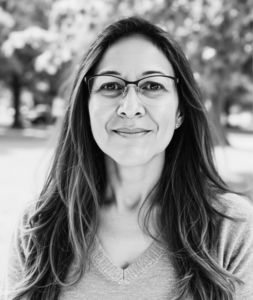Posts Tagged ‘loss of a child’
Quiet Hope: Healing as a Nurse, Mourning as a Mom
By: Yhaimar Barile
I’m a nurse. I’m a writer. And I’m a mom who lost her son.
Last year, shortly before his eighteenth birthday, my son Gabriel died unexpectedly. Everything changed after that. Life split into a clear “before” and “after.” The world around me kept moving, but mine stopped. Nothing looked or felt the same—not my family, not my work, not even myself.
Grief changes everything.
Nothing prepares you for the kind of loss that tears through every part of your life, including your work. I believed, like many others, that after a few weeks of grieving, I could go back to nursing. I thought life would find a new rhythm, even without my child. What I didn’t expect was how grief and trauma would reshape how I could (or couldn’t) show up for myself and for my patients. I wasn’t a nurse grieving a loss; I was a mother reckoning with the trauma of losing her son.
It soon became clear that returning to bedside nursing was impossible for me in that season. That realization marked the beginning of a profound and seemingly permanent shift in my path and identity. Nursing was my calling, but now I am rethinking how I can care for others, contribute, and find purpose despite losing my son.
Grief reshapes you. I was still a nurse—but I was also a mother in mourning, learning to survive something that felt impossible. Healing started there. It didn’t come from answers or quick fixes but from learning to treat myself with kindness.
Healing is being gentle with where I am.
Healing starts with gentleness. It means meeting myself right where I am, day by day. Healing from trauma and grief means knowing what my mind, body, and spirit need. Some days, that means moving my body or nourishing myself as best I can. Other days, it means resting or letting creativity speak through writing or art.
Healing is work, but not the hustle kind. It’s being intentional in caring for myself, trying when I can, and not judging myself when I can’t. Honoring even the smallest act of self-compassion is essential. This is how I rebuild, one gentle step at a time. In these small steps, I find the quiet strength of hope.
Hope is the act of showing up.
Hope, for me, doesn’t arrive with fanfare. It’s often quiet—the choice to keep showing up for myself and my family, despite my imperfections. Right now, hope means reaching for a new purpose: health content writing, connecting with those who understand loss, or honoring Gabe’s memory in ways that feel true.
Most days, hope means allowing the possibility of meaning to return, even in small moments. It’s trusting that my life and work can grow and change, and that honoring my grief is compatible with helping others.
If you’re walking through the trauma of grief, please know healing may feel like work, because it is. But it’s work that starts with gentleness and self-compassion. Hope doesn’t have to be grand. Sometimes, it’s simply the act of showing up. That is enough. You are not alone.
About Yhaimar Barile:
 I’m Yhaimar Barile (she/her), a nurse, writer, wife, and mother learning how to live after the loss of my son Gabriel, who died unexpectedly just before his eighteenth birthday.
I’m Yhaimar Barile (she/her), a nurse, writer, wife, and mother learning how to live after the loss of my son Gabriel, who died unexpectedly just before his eighteenth birthday.
Born in Venezuela and now living in Atlanta, I run Legacy Nurse Writer—a name that carries Gabe’s spirit and my hope to keep helping others in his memory. Grief changed everything, including how I care for others, how I work, and how I move through the world.
I’m raising my son David alongside three incredible stepboys. Most weekends, I’m at the soccer field, cheering on with quiet pride. Our Boston terrier, Luna, is always nearby, sensing when I need a nudge, or a reason to smile.
Lately, I’ve found comfort in glass fusing—turning broken pieces into something whole and beautiful. It’s become a kind of language for everything I can’t quite say.
What gets me through? Gentleness. Storytelling. Connection. I believe healing doesn’t mean moving on. It means carrying love with us and finding meaning in the process. Some days, just showing up is enough. And on the hardest days, I remind myself: even quiet hope counts.
What Can Help with Early Traumatic Grief?
By Claire Irwin
When your child dies you are thrown into a nightmare. None of this is expected to be easy.
Even after several months, it still isn’t. There have been some things that have helped us during
our grief. Maybe they will help you, too.
1. Let someone organize a meal train. The community rallied, making sure we had meals
delivered to our home for weeks after our daughter died. I have zero idea what we would have
done without this. Right after this traumatic loss I couldn’t even think about eating, let alone
cooking and meal planning.
2. Grief counselling. Our counsellor comes every week since the second day. Some may not agree, but honestly, we have learned some great survival tools and have our feelings validated.
To be able to talk about it all in a safe environment is very helpful, and just talking about
everything helps.
3. Find something to keep you busy. Mind you, we haven’t found our way to any gym yet or back to work, but we find other ways to move our bodies. Gardening, cutting grass, walks,
landscaping, anything really to get our bodies moving has really helped us.
4. Try journaling. I wish I started this earlier. If you can find it in you to do it, I recommend it. For me personally, it helps get whatever is in my head out on paper. I document how I’m feeling. I also get my anger out on paper too. I’ve been learning that you can let it build up inside of you. This energy needs to get out. I find writing very helpful for me. I journal daily. Plus, it helps me keep my days in order because they tend to blend.
5. Let your support system hold you. This has been a huge help. I don’t know where I would be today if I didn’t have the people closest to us. Lean into them and let them help. Use them as sounding boards. Whatever it is you need, if they are willing and able to be there for you, let
them. It’s not easy asking for help or accepting it, but it’s helped us feel loved and seen. It’s also
helped us back on our feet a bit.
At the core of it all, just remembering to breathe is sometimes all you can do. Something our
grief counsellor has taught us right from the very beginning:
Inhale 4 seconds…Hold 7 seconds…Exhale 8 seconds. Repeat as needed.
Like I said, surviving this grief and trauma isn’t easy, and it doesn’t come with a handbook. We
are all just doing the best we can, and it’s sucks all at the same time. Our loss cannot be fixed, it
can only be carried, and these are some of the things helping us to carry it now.
Krista – “My wish”
Krista – “My wish”
Krista discusses why she thinks helping others is important. Krista continues to grieve the death of her son from opioid overdose.
Krista – “Strength”
Krista – “Strength”
Krista talks about how she sees strength and sucking it up. Krista continues to grieve the death of her son from opioid overdose.
Krista – “Changes”
Krista – “Changes”
Krista discussed what has changed since her son’s overdose. Krista continues to grieve the death of her son from opioid overdose.
Krista – “Crying”
Krista – “Crying”
Krista talks about how crying helps her. Krista continues to grieve the death of her son from opioid overdose.
Krista – “Exercise to get it out”
Krista – “Exercise to get it out”
Krista tells how she releases stress through kickboxing. Krista continues to grieve the death of her son from opioid overdose.
Krista – “Grief counselling helps”
Krista – “Grief counselling helps”
Krista talks about how a listening ear has helped her. Krista continues to grieve the death of her son from opioid overdose.
Krista – “How a counsellor helps”
Krista – “How a counsellor helps”
Krista explains how a grief counsellor has helped.
Krista – “Things you can do that help”
Krista – “Things you can do that help”
Krista shares some of the things that help her through the grieving process.
Donna B – “Accepting support”
Donna B – “Accepting support”
Donna explains how support can help. Donna continues to grieve the death her son during service in Afghanistan.
Donna B – “Tools for a year of firsts”
Donna B – “Tools for a year of firsts”
Donna discusses how to look after yourself. Donna continues to grieve the death her son during service in Afghanistan.


